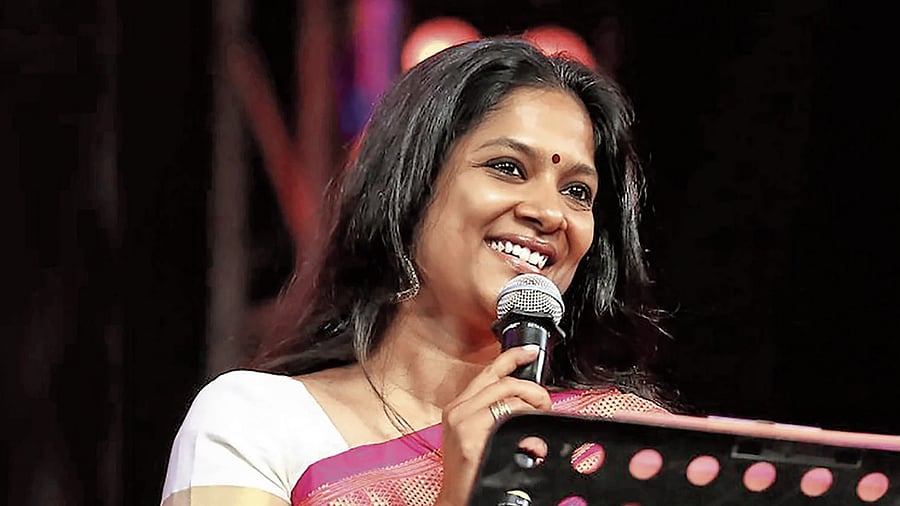
M D Pallavi.
Kayaka is the innovative new project of Bengaluru musicians M D Pallavi and Bruce Lee Mani. It is breaking fresh ground by pairing the words of 12th-century vachanas with contemporary experimental music.
Pallavi is a classically trained sugama sangeetha singer, a tradition that sets Kannada poetry to music. She says the vachanas, which speak loudly against injustice and inequality, are as relevant today as they were when they were written.
“I’ve yet to come across a vachana I disagree with,” she says.
The verses were originally written by people known as Sharanas, who came from all walks of life and were often considered saints, explains Pallavi. Sharanas included cobblers, weavers, grain-pickers and sex workers, all of whom considered their daily labour to be the most sincere form of worship. “That’s what ‘kayaka’ means — work,” she says.
Mani, an experimental guitarist, says there is no better time for the egalitarian sentiments of the vachanas to be expressed again. “The gulf between the haves and the have-nots is growing at an astronomical pace,” he says.
Kayaka, which was supposed to be a one-off collaboration between Pallavi and Mani for a podcast special, now also includes a seven-piece band.
Despite having only played two live shows, the band has already recorded an album, set to be released in a few months.
The two foundational musicians approach composition together, allowing the intention of each poem to shape the song. Citing an example, Mani says the arrangement of an “attitude-filled” yet sensitive poem by seminal Dalit poet Kalavve enhances its measured power. “For two minutes, a single bass note hammers away in the background — it’s the grind of the system with the poem floating above,” he adds.
He says the compositions offer a rich “grab bag” of styles for audiences to experience, including Indian folk, Western blues, and even West African traditions.
Pallavi says this “great musicianship” means even those unfamiliar with the vachanas will find much to appreciate. However, deeper understanding comes from “chewing on” the rich lyrics.
To support this, Kayaka plans to project translations on a screen during future performances, helping audiences engage more fully with the experience.
They are also eager to present their songs to those who are already familiar with the vachanas, especially in rural Karnataka. “It’s their ‘top 40’, so what will their response be?” wonders Mani, who says he’s eager for constructive criticism.
Mani emphasises that they are not activists, but instead see themselves as part of a long lineage of artistes using music to inspire change.
“We’re doing our best to hold that torch,” Mani says. “Sometimes it’s just a spark, but it’s worth it.”